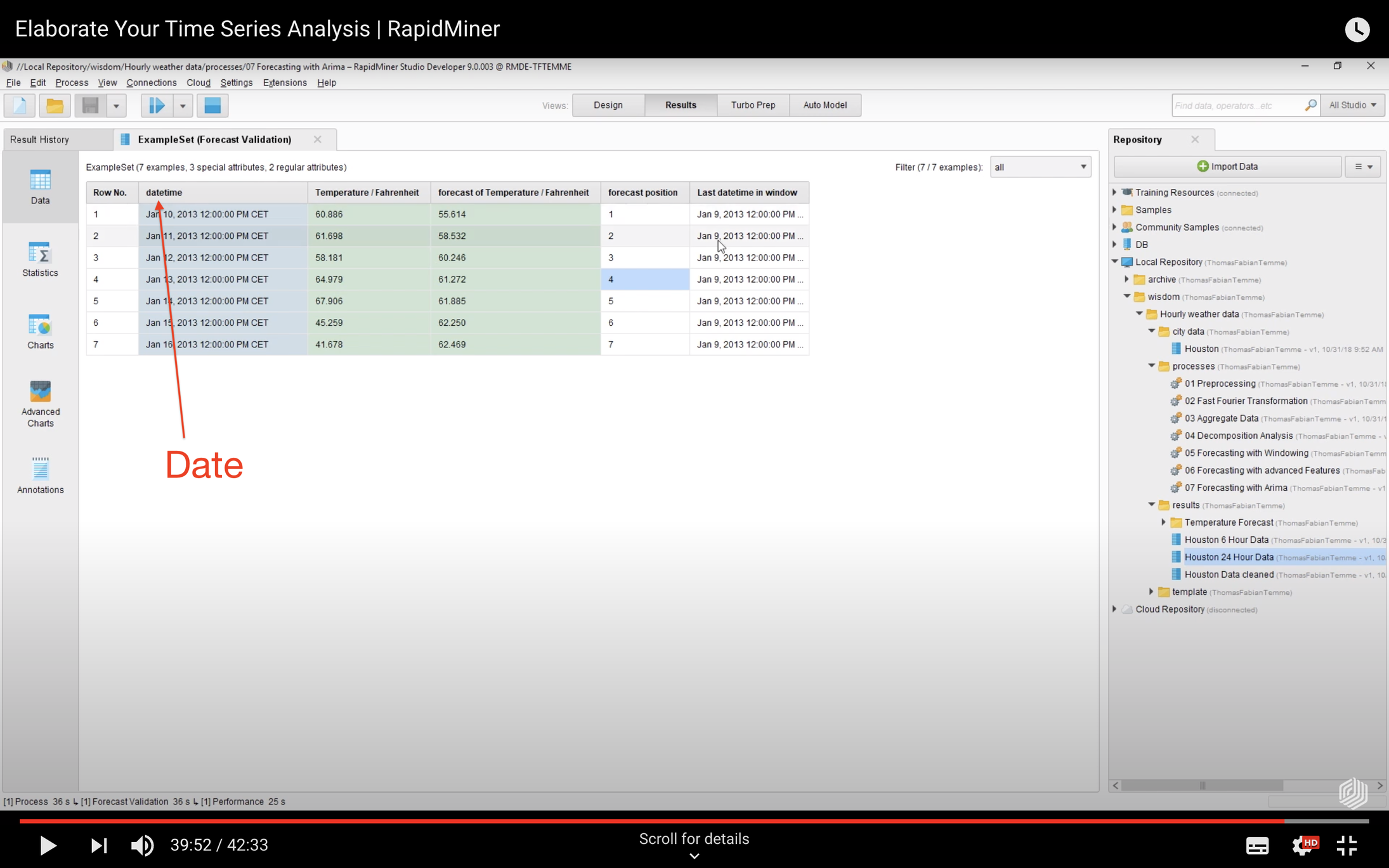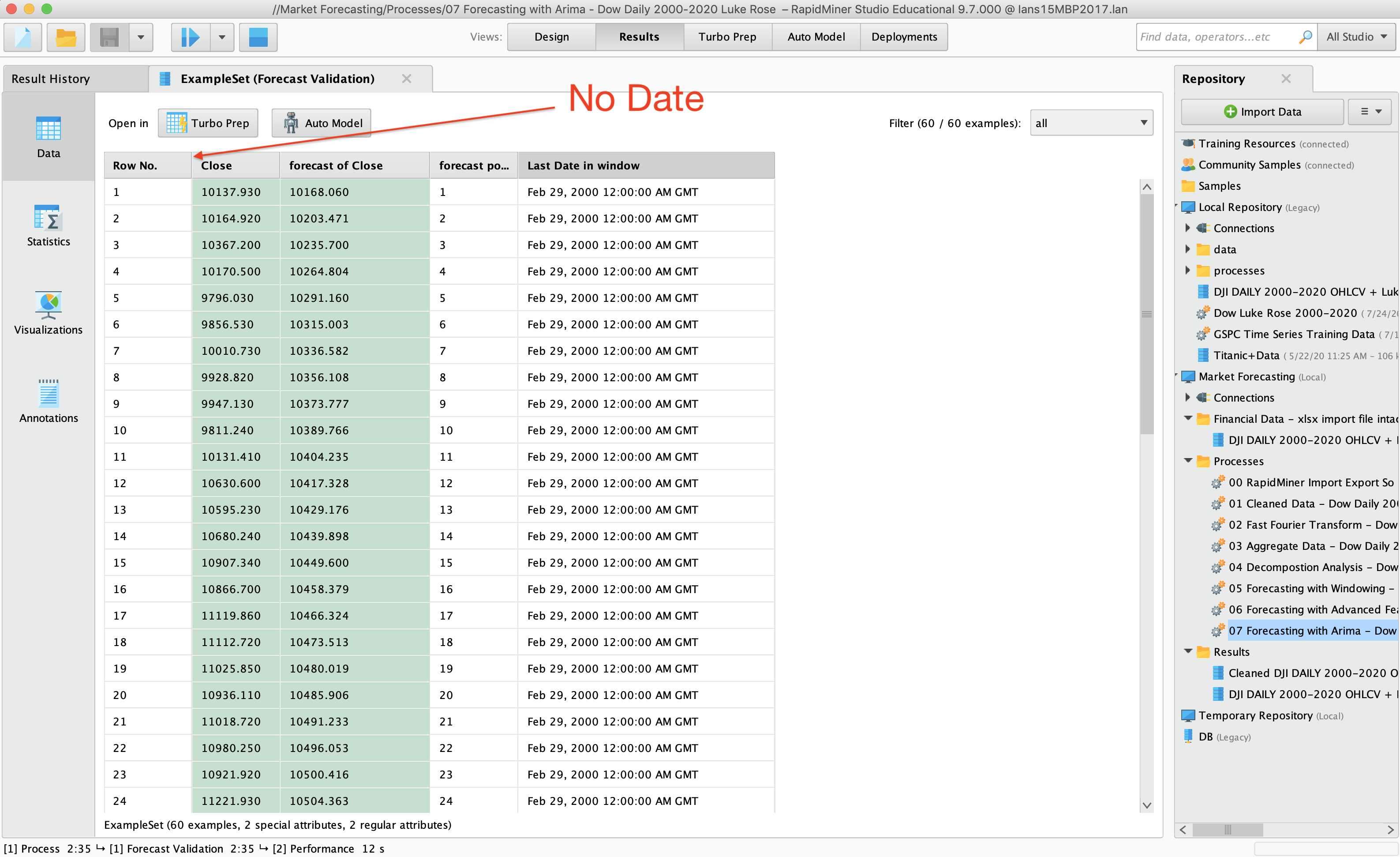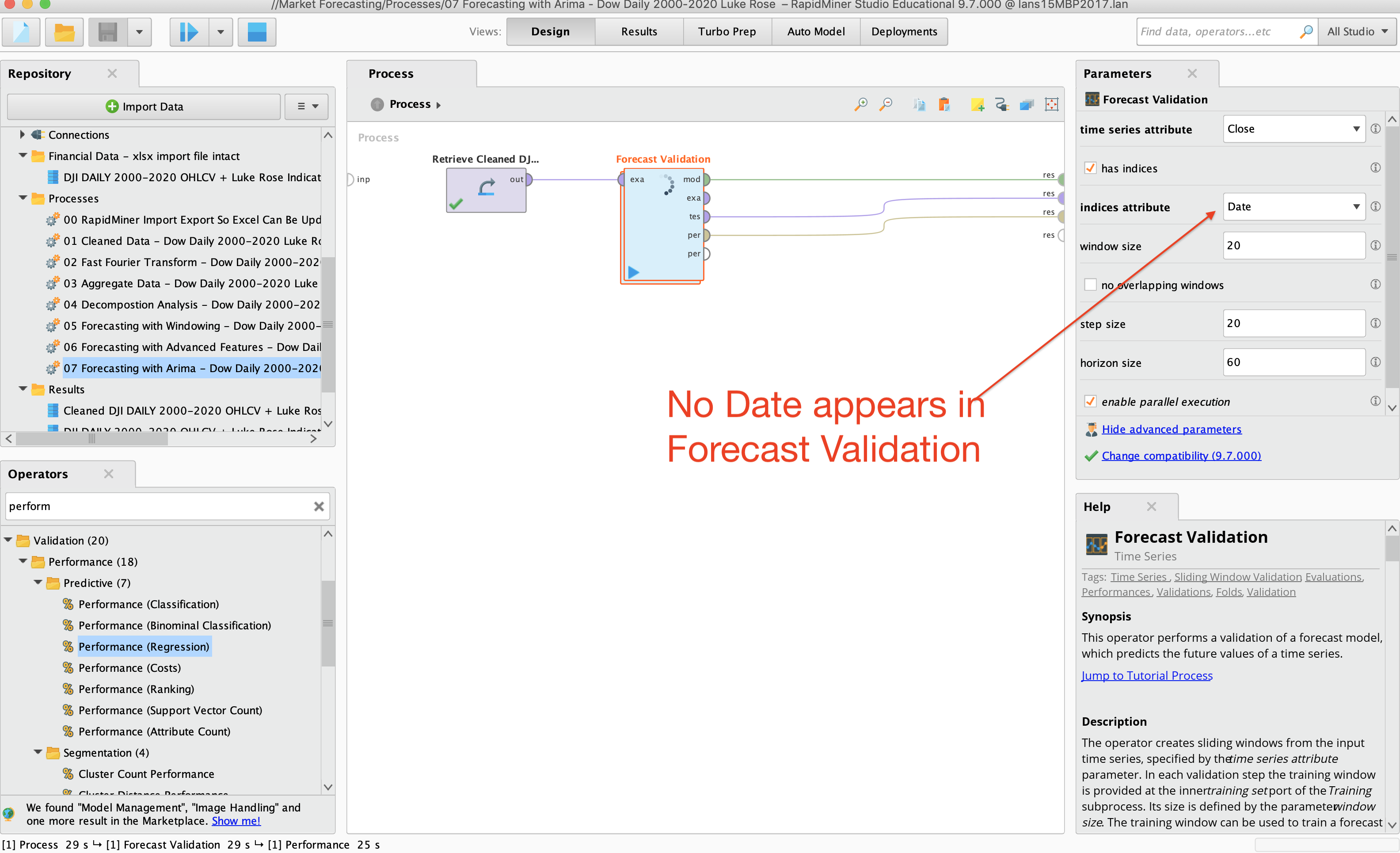Hi
I was following the Elaborate Your Time Series Analysis video:
https://www.youtube.com/watch?time_continue=2182&v=Hvdh8ItfiGA&feature=emb_logoIt clearly shows a date column when you're doing a performance (regression) analysis using ARIMA. Pls see YouTube "Elaborate Your Time Series" video image.

I set up my process the same as the video but don't have this test date to refer to?
Pls see images:

and yet I set the attribute as Date as in the video instructions?

So could someone please tell me how do I get a date reference?
Also is there a way to swap the order of the close column and the forecast column so that the forecast column comes first before the actual close?
Cheers,